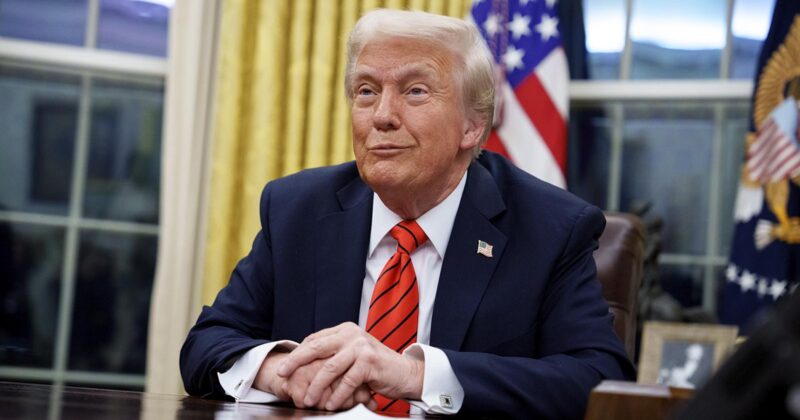President Donald Trump’s looming tariffs are twisting the arms of auto manufacturers, including one that on Sunday announced it will be making a sizable investment in a key midwestern red state.
Over the weekend, North American executives for Honda stated that the company’s next generation of Civic hybrids will be assembled inside an existing Indiana plant, shifting the Japanese company’s manufacturing from another location in Mexico to avoid the tariffs. The president intends to slap the southern neighbor with a 25% tariff on all imports by midnight Tuesday unless President Claudia Sheinbaum doubles down on her commitment to reducing the flow of deadly drugs and illegal immigrants.
Previously, Honda had intended to build its newest fleet of Civics at a plant in Guadalajara starting in 2027. The change now means that the vehicles will almost certainly be built in Greensburg, home to the company’s sole manufacturing facility in Indiana.
A company spokesperson declined Reuters’ request for comment but stated that Honda would continue to consider demand and the business environment in its global production and allocation decisions.
The outlet, which broke the news, reported that automakers initially chose Mexico but reversed course after it became clear that President Trump fully intended to institute tariffs at the beginning of March.
A base model for the 2025 Honda Civic currently sells for $24,250, and a 25% tariff would likely put that price tag above $30,000 before any add-ons.
So far, President Trump has been unhappy with commitments made by Mexico to deal with the scourge of fentanyl. Sheinbaum recently announced that her government would send an additional 10,000 Mexican troops to the U.S. border to deter illegal crossings.
Kevin Hassett, the director of the White House National Economic Council, said progress by Mexico and Canada, which also faces the specter of 25% tariffs, “was not as impressive as the president had hoped.” He stressed to the AP that reciprocal tariffs would build on the 25% tariff if Mexico or Canada responded with tariffs on U.S. goods.
Honda, Japan’s second-largest automaker behind Toyota, initially chose Mexico due to the high cost of labor in Indiana. However, Chief Operating Officer Shinji Aoyama warned that new tariffs would make the red midwestern state a more competitive manufacturing location.
The company sold over 240,000 Civics in the U.S. last year, second only to its CR-V model and representing a 21% year-over-year increase, according to WishTV. About 40% of Civics are manufactured and imported from Canada and Mexico, and Honda exports another 60,000 vehicles to both countries each year. Those shipments could also be hit hard if retaliatory tariffs are implemented.
Other companies have recently announced plans to make significant investments in American manufacturing and workforce training. Last week Apple said it expects to open a 25,000 square foot AI facility in Houston by the end of 2026, just part of a $500 billion domestic investment.
Both investments are economic wins for President Trump and build on earlier moves by Saudi Arabia and the launch of Stargate, a $100 billion initiative by OpenAI, SoftBank, and Oracle to drive artificial intelligence projects forward on U.S. soil.
SoftBank CEO Masayoshi Son promised his company would work to add 100,000 new jobs in the U.S. focused on artificial intelligence and related infrastructure. The billionaire entrepreneur plans to make all investments by the end of Trump’s second term.

